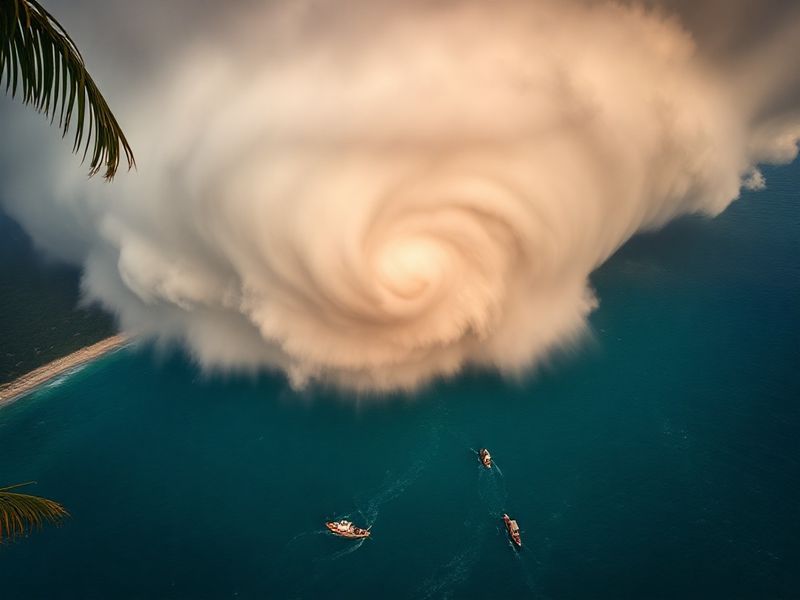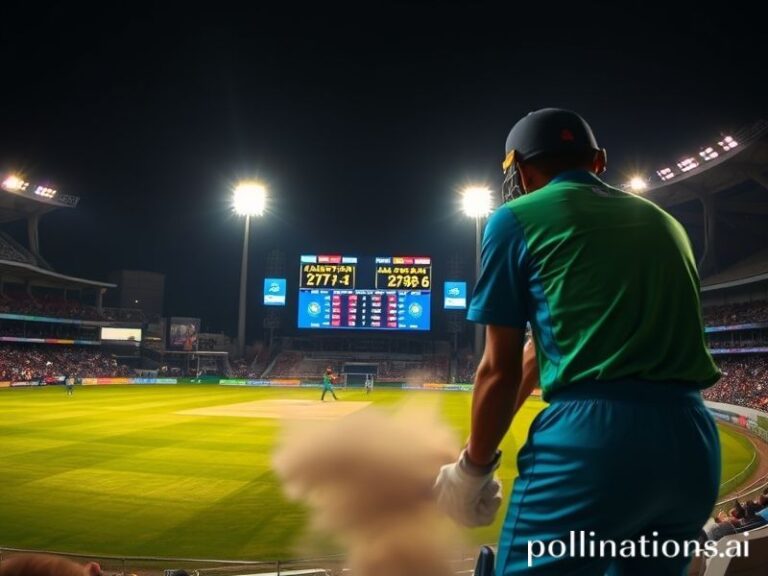tropical storm lorena
Tropical Storm Lorena: A Gentle Reminder That the Planet Still Hates Us
By Our Correspondent in the Tempestuous Tropics
They named her Lorena, presumably after someone’s abuela who brewed lethal coffee and never forgot a grudge. This week, the storm politely introduced herself to the Mexican Riviera, slapped Acapulco with 65-mph winds, and then drifted seaward like a tourist who realized the bar tab was in pesos. From a distance, Lorena resembles just another comma on the satellite map—one more swirl of warm water and bad decisions. Yet viewed through the wide-angle lens of a planet that has run out of chill pills, she is an elegantly timed allegory: small, manageable, and still ruinous enough to make Wall Street interns update their catastrophe models between oat-milk lattes.
Global markets, those finely tuned panic machines, reacted with the predictability of a house cat spotting a cucumber. Insurance stocks dipped, avocado futures spiked (because nothing screams “supply-chain anxiety” like flooded Michoacán orchards), and European reinsurers began the annual ritual of pretending they totally saw this coming. Meanwhile, the Asian typhoon circuit—recently host to Koinu and Haikui—offered a courteous golf clap: “Nice entry, kid, but wait until you meet the Indian Ocean in April.”
The United Nations Office for the Coordination of Humanitarian Affairs issued the customary press release, complete with the phrase “rapid needs assessment,” which is bureaucratese for “we’ll circle back once the Wi-Fi is restored.” Across the Atlantic, the U.K. Met Office took the opportunity to remind Britons that their own soggy island is now statistically likelier to import hurricanes than decent dental work. And in Washington, a senior NOAA official—speaking on background because 2024 is an election year and weather is suddenly partisan—muttered that naming conventions may need an upgrade: “If we’re going to anthropomorphize the climate crisis, we might as well use names people fear. Next up: Tropical Storm Tax Audit.”
Lorena’s real geopolitical gift is displacement in miniature. Roughly 3,000 tourists were evacuated from coastal resorts, producing viral TikToks of damp influencers clutching wet passports and sponsored protein bars. Their temporary inconvenience is a postcard from the future, when Kiribati citizens will be doing the same dance without the return flight. The Mexican navy deployed amphibious vehicles originally purchased to deter drug cartels; watching marines rescue sunburnt honeymooners offered the surreal tableau of militarized customer service. One German backpacker told Reuters, “It’s like Oktoberfest, but with existential dread,” which is also an accurate review of the last G-7 summit.
In the Pacific, Japan’s meteorological agency quietly upgraded its seasonal forecast, noting that warmer ocean temperatures are “conducive to cyclogenesis.” Translation: the bathtub is getting hotter, and the rubber ducks have teeth. Insurance-linked securities traders in Bermuda—picture Gordon Gekko in flip-flops—priced the new data into catastrophe bonds that now yield less than a Mediterranean summer is long. Their spreadsheets embody the new global pastime: monetizing doom.
Back on land, Mexican disaster officials performed the time-honored dance of distributing tarps and platitudes. President López Obrador tweeted a photo of himself pointing at a puddle, captioned “We are vigilant.” Somewhere in Silicon Valley, a startup founder saw the same image and filed a patent for AI-powered puddle detection. Venture capital promptly awarded it a $40 million Series A because, really, what’s the point of apocalypse if you can’t disrupt it?
And yet, Lorena is merely an opening act. The Atlantic basin has exhausted its alphabetical allotment of storms so often that meteorologists now keep a supplementary Greek list, which feels on-brand for an era when even the weather requires addenda. Meanwhile, Antarctic sea ice hits record lows, Canadian forests moonlight as chimneys, and the Arctic Circle registers temperatures better suited to Provence. Collectively, these data points suggest Earth is staging a midlife crisis—convertible sports car, questionable tattoos, and the thermostat permanently set to “regret.”
Conclusion: Tropical Storm Lorena will be forgotten by next Thursday, filed away in the annals of “near-miss” alongside Hurricanes Barry, Nestor, and that one tropical depression your ex named after you. But the broader significance is harder to dismiss: a planetary immune system in cytokine storm, coughing up warnings we keep mislabeling as isolated incidents. So raise a glass—preferably something biodegradable—to the next lightly scorned tempest. She’s small, she’s polite, and she’s RSVP’ing to a coastline near you. Try not to take it personally; the planet’s just not that into us.







